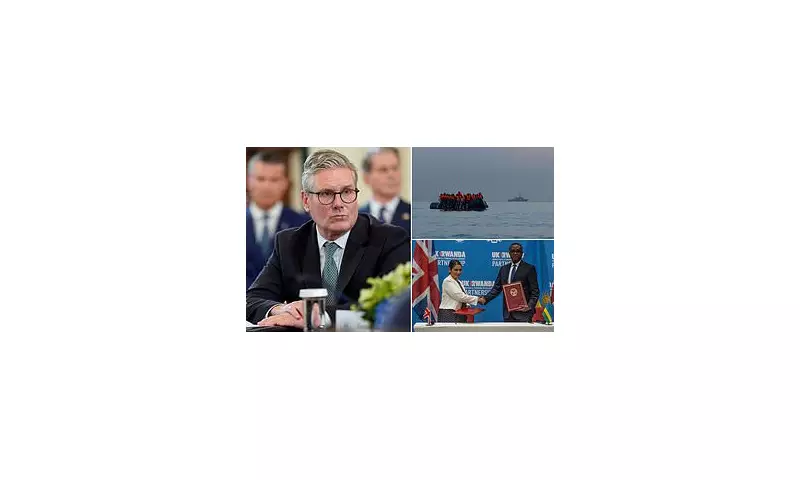
In a remarkable political volte-face, Labour MPs are dramatically shifting their stance on Rwanda-style deportation schemes for small boat migrants as Britain faces the highest asylum application numbers in over two decades.
Staggering Asylum Figures Force Policy Rethink
Official statistics reveal a crushing reality: asylum claims have skyrocketed to 20-year highs, with nearly 100,000 cases clogging the system. The backlog has swollen to unprecedented levels, forcing even the most liberal MPs to confront the escalating crisis.
Shadow Home Secretary Yvette Cooper now openly advocates for "similar schemes to the Rwanda plan" while carefully distancing herself from the controversial original policy. This nuanced positioning marks a significant departure from Labour's previous outright condemnation of offshore processing.
The Quiet Consensus Building in Westminster
Behind closed doors, Labour frontbenchers are acknowledging what many previously denied: the small boats crisis demands solutions beyond mere rhetoric. The sheer scale of illegal Channel crossings—exceeding 45,000 in the past year alone—has shattered previous political calculations.
One senior Labour source confessed: "The numbers don't lie. We cannot maintain our previous position when the system is clearly broken. The public expects action, not ideology."
Conservatives Seize on Labour's 'Hypocrisy'
Tory ministers have pounced on the opposition's changed tune, branding it "the most spectacular U-turn in recent political memory." Home Office insiders suggest the government will intensify pressure on Labour to clarify its increasingly muddled immigration position.
Meanwhile, refugee charities express alarm at the emerging cross-party consensus. "Politicians are competing to see who can be toughest on vulnerable people," lamented one aid worker. "Human rights are being sacrificed for political point-scoring."
What Comes Next?
The political landscape on immigration is shifting beneath Westminster's feet. With both major parties now embracing elements of offshore processing, the debate has moved from whether to implement such schemes to how they should be operated.
As summer crossing numbers continue to climb and processing centres reach breaking point, this political transformation may only be beginning. The British public, weary of years of empty promises, will be watching closely to see which party can actually deliver results.





